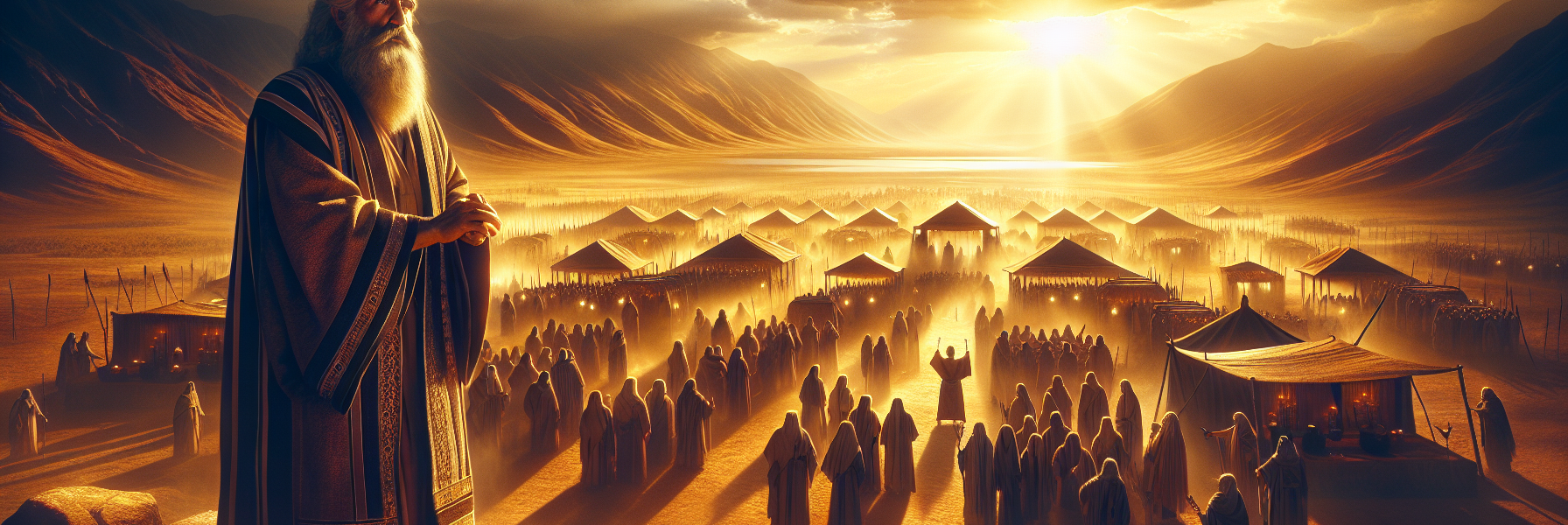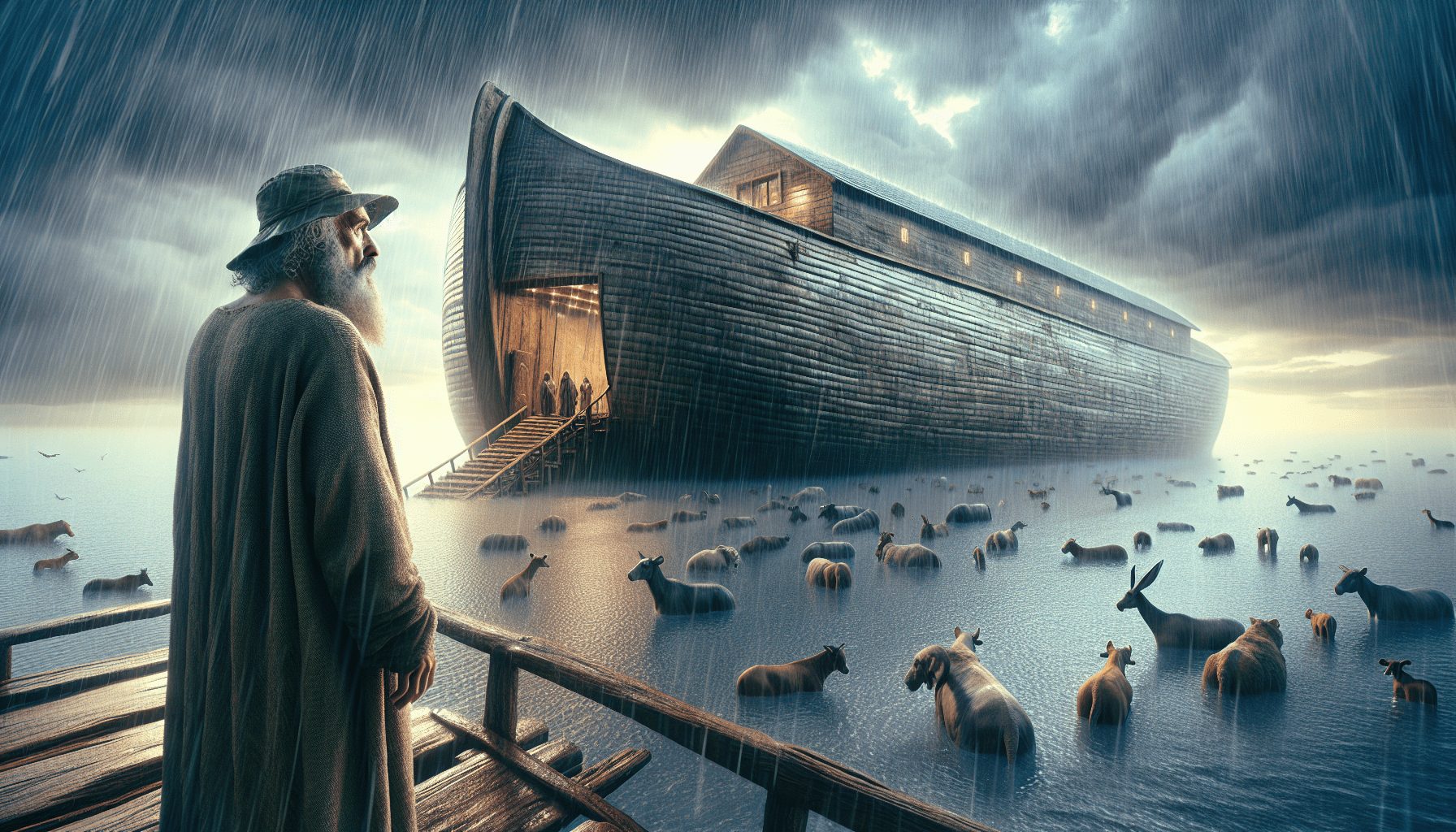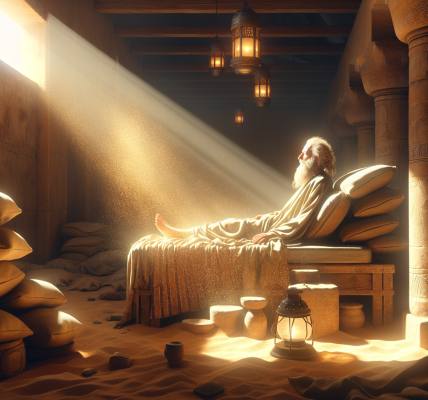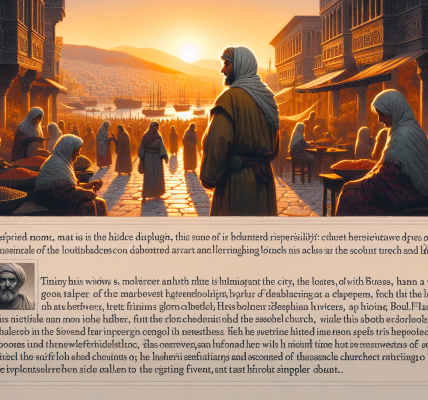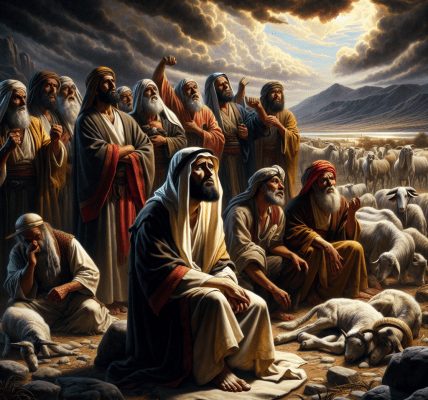**The Covenant of Holiness: A Story of Separation and Sacred Boundaries**
The sun hung low over the wilderness, casting long shadows across the camp of Israel. The air was thick with the scent of burning incense from the Tabernacle, mingling with the dust of the desert. Moses stood before the assembly of elders, his face solemn, his voice steady yet heavy with divine authority. The Lord had spoken to him again, and the words he carried were not merely laws but sacred boundaries—lines drawn by the very hand of God to set His people apart.
### **The Command from Sinai**
The people gathered in the shadow of the great mountain where God had given them His covenant. The memory of thunder and fire still lingered in their minds. Now, the Lord spoke through Moses once more, not in the rumble of quaking earth, but in the quiet conviction of His servant’s voice.
*”Speak to the Israelites and say to them: ‘I am the Lord your God. You must not do as they do in Egypt, where you used to live, nor as they do in the land of Canaan, where I am bringing you. Do not follow their practices.’”*
Moses paused, letting the weight of the words settle upon the people. Egypt—the land of bondage, where gods of stone and beast were worshipped in abominable ways. Canaan—a land flowing with milk and honey, yet steeped in wickedness. The Lord was not merely giving them a land; He was calling them to be a holy nation, a people unlike any other.
### **The Boundaries of Blood and Flesh**
*”You shall keep my statutes and my rules; if a person does them, he shall live by them: I am the Lord.”*
Moses lifted his hands, his weathered fingers tracing the unseen lines of divine law. The first decree was clear: *No one was to approach a close relative to uncover their nakedness.* The people shifted, some bowing their heads, others exchanging uneasy glances. The prohibition was not arbitrary—it was a safeguard against the corruption that had defiled the nations around them.
*”The nakedness of your father, the nakedness of your mother—you shall not uncover. She is your mother; you shall not uncover her nakedness.”*
A murmur rippled through the crowd. In Egypt, the pharaohs had married their sisters, believing it preserved royal blood. In Canaan, fathers lay with daughters in the name of false gods. But Israel was to be different. The family was sacred, a reflection of God’s order, not a thing to be defiled.
Moses continued, his voice unyielding.
*”The nakedness of your sister, the daughter of your father or the daughter of your mother, whether born at home or born abroad, you shall not uncover their nakedness.”*
A young man in the assembly clenched his fists, thinking of rumors he had heard of tribes beyond the Jordan where such things were done in secret. But the Lord saw all secrets, and His law left no room for hidden sin.
### **The Forbidden Unions**
The prohibitions continued, each one a barrier against the moral decay of the nations:
– A man must not lie with his son’s daughter or his daughter’s daughter—such a thing was a perversion.
– A man must not take his father’s wife, for it dishonored his father’s bed.
– A man must not lie with his aunt, whether his father’s sister or his mother’s sister, for she was his own flesh.
– A man must not marry a woman and her daughter, nor her granddaughter—such unions were depraved, turning family into a den of lust.
The people listened, some with trembling hearts, others with quiet resolve. These were not mere restrictions; they were the very fabric of holiness.
### **The Abomination of Canaan**
Moses’ voice grew heavier as he spoke the final warning.
*”You shall not lie with a male as with a woman; it is an abomination.”*
The elders stiffened. They had heard whispers of such acts in Sodom before its destruction, and now the Canaanites practiced them openly in their temples, calling it worship. But the Lord detested it.
*”And you shall not lie with any animal and so make yourself unclean with it, neither shall any woman give herself to an animal to lie with it: it is perversion.”*
A shudder ran through the assembly. The nations around them had mingled seed with beasts in their darkened rituals, believing it brought power. But Israel was to be pure.
### **The Warning and the Promise**
Moses raised his hands high, his voice ringing like a prophet’s cry.
*”Do not make yourselves unclean by any of these things, for by all these the nations I am driving out before you have become unclean, and the land became unclean, so that I punished its iniquity, and the land vomited out its inhabitants.”*
The image was vivid—a land so defiled it could bear its people no longer, expelling them like a body rejecting poison. Canaan’s fate was a warning.
*”But you shall keep my statutes and my rules and do none of these abominations… lest the land vomit you out when you make it unclean, as it vomited out the nation that was before you.”*
Silence fell. The choice was clear: obey and live in the land as God’s holy people, or disobey and be cast out like the Canaanites.
### **The Call to Holiness**
Moses lowered his hands, his gaze sweeping over the people.
*”For everyone who does any of these abominations… the persons who do them shall be cut off from among their people.”*
To be cut off—exiled, or worse, struck down by divine judgment. The price of rebellion was death.
Yet in the same breath came the promise:
*”I am the Lord your God.”*
He was not a distant tyrant, but their Redeemer, the One who had brought them out of Egypt to be His own. His laws were not chains, but the path to life.
As the assembly dispersed, the words lingered in the air, a covenant of holiness written not just on stone, but on the hearts of those who would heed them. The Lord had spoken. The choice was theirs.
